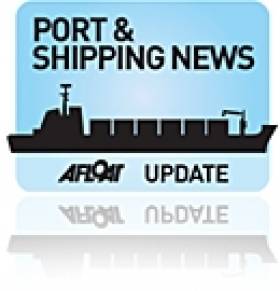Displaying items by tag: Dr. Robert Ballard
Germanischer Lloyd Award to Maritime Management
in Ireland.
"Achieving ISO 14001 accreditation, an internationally recognised green standard, shows our respect of the sensitive marine environment and has been well received by our international and Irish clients. It is of particular significance to our clients involved in underwater exploration and scientific research and those involved in the transport of agricultural produce either refrigerated or in bulk."
Maritime Management has an international client base with a diverse range of vessels. Services include technical, operational and crewing for specialist passenger ships, cargoships, refrigerated cargo ships and specialist vessels such as the exploration vessel EV Nautilus.
The vessel is managed on behalf of the famous undersea explorer Dr. Robert Ballard, who is known best for his discovery of the Titanic, PT 109 and the Bismark. Over the last two years Maritime Management has carried out major work to adapt the vessel to suit the requirements of broadcasters National Geographic and CBS.
The work carried outon the vessel has the ground breaking ability to broadcast live HD video from the ocean floor. This enabled scientific teams from the USA and around the world to interact in real time with the underwater operations. To read more about the work of the EV Nautilus and the mapping of underwater volcanoes, life forms,shipwrecks and more click here.
Maritime Management's projects in Ireland have included the design and construction of the Geological Survey of Ireland (GSI) RV Keary, a small yet high-tech survey vessel which was built in South Africa. The 15m asymmetrical catamaran is constructed of aluminium and has a speed of 15 knots. The craft has a Marine Survey Office P5 license for 12 passengers. For further technical details click here.






























































